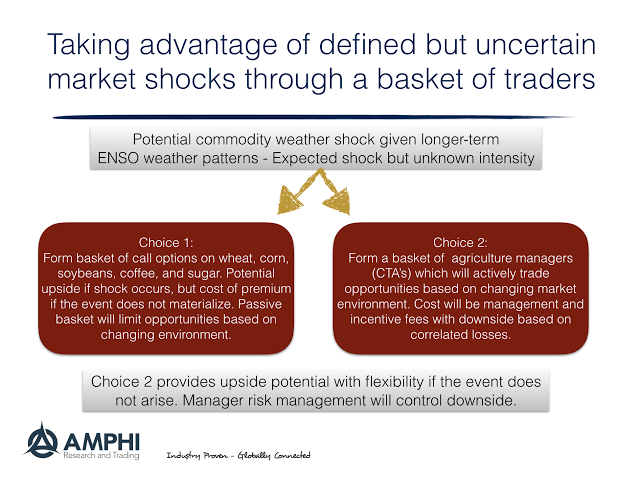There is the potential for a major agricultural price dislocation if a strong La Nina effect lasts through the summer. It is unclear whether the current La Nina effects will continue, and current expectations are that it will dissipate in the spring, but history suggests that ENSO effects can disrupt many major commodity prices including corn, soybeans, wheat, coffee, and sugar. So how can investors take advantage of this uncertain opportunity?
Along with the weather, there are two key variables to follow for agricultural price shocks, the stocks or inventories that are currently held and the market estimates for production. Recent data from the WASDE report shows there is some expected tightening of ending supplies relative to last year, albeit there is still inventory abundance. A shock will not matter if there a strong inventory cushion.
It may be early to fully handicap summer weather, but it is not too early to set-up a trade especially if it is a trader allocation. We have reviewed this idea with some leading grain commodity managers who have a mixed picture for the expected price environment at the end of this marketing year for coarse grains, wheat, and oils. However, there is the general belief that a tighter buffer of inventory may allow for more price volatility. This is why we think the best way to play the grain markets is through a manager basket.
Instead of buying a portfolio of call options on grains, the smart play can be buying a basket of active managers where your downside is the correlated loss of the manager basket. A sustained loss on the manager basket will be related to the combined forecasting mistakes of the manager portfolio based on their active bets.
Given the unique features of liquid commodity markets, the idea of forming portfolios of active managers to take advantage of defined but uncertain shocks may make sense.


